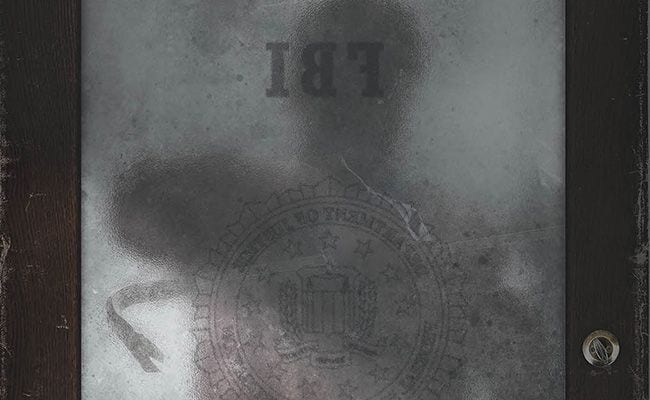
The 8th of March 1971: it was a night when the world was watching TV; taking in what was billed as one of the greatest boxing matches of all time. Muhammad Ali was going toe-to-toe with Joe Frazier. Yet, something else was going on at that moment in the town of Media, Pennsylvania: eight people broke into an FBI office and stole hundreds of secret files with the intention of sharing them with the public.
Calling themselves the Citizens’ Commission to Investigate the FBI, the group began mailing the stolen documents to various media sources. The documents spoke to some Americans worst fears: the FBI was intimidating and attempting to silence many Americans who were simply exercising their First Amendment rights. Whether civil rights activists or anti-war demonstrators, the voices of dissent were going to be permanently suppressed if FBI head honcho J. Edgar Hoover had anything to say about it.
One might argue that the FBI of this particular era represented a cartoonish vision of what a government agency could become — as though good and evil had become mixed up, confused, and some kind of farcically malevolent force that was bent on encroaching upon the American dream. This is an FBI, by the way, that never solved this particular mystery. The names and faces of those who participated in this caper have never been officially revealed.
This is where 1971 picks up the story: walking us through the break-in and the people behind it, and examining their stories and reasons for wanting to expose the FBI and its wrongdoing.
The film is remarkable in its quietness. Despite detailing what must have been a nerve-wracking endeavor, the picture never tries to jolt us into shock or outrage. Instead, it tells the story as it happened. It’s not exactly detachment, but instead, a clarity that allows the viewer to play witness and experience the events as they are retold. It’s a refreshing throwback to an earlier style of documentary filmmaking in which we are allowed to think more than we are being asked to feel entertained.
I almost wondered sometimes if I had missed something amid the lack of hysteria and manufactured outrage. I hadn’t.
Still, there are moments fraught with tension; moments that keep the viewer biting their fingernails while watching the events of the past unfold. There are disguises and ruses that some might think would only half work in some bad ‘60s comedy, and yet they come off just fine here. Fine enough that the perpetrators are never caught, anyway.
Director Johanna Hamilton’s impeccably delicate pacing and deep understanding of the material make for a viewing experience that is ultimately educational and revealing. Participants tell their stories in a measured but real way that makes them all the more human to viewers. If these are the faces of the radicals that Hoover was terrified of, or wanted the rest of us to be terrified of, he was, and remains, laughably wrong. These are people with an interest in justice, that carried out activities which ordinary citizens had every right to know about, and every right to find antithetical to freedom.
It is perhaps one of the greatest disservices to history that people, who like those who participated in the 1971 break-in, are often painted as dangerous radicals on the fringe. Yet they aren’t ruthless thrill seekers, but Americans who care about their nation and those who populate it.
This is an important moment in history, and one that we can only be glad is finally getting its due thanks to films such as this, filled with the energy of those who participated coming forward to speak about their audacious actions.
The only real problem with 1971 is that the lack of sensational cinematics will probably leave the film with a quiet following and not enough people will get to see this picture. That’s a shame, because 1971 depicts a courageous act of toe-to-toe defiance. In the end, perhaps those who do see the film will be unable to shake the sense that these types of stories have been kept in the shadows for too long.
One might watch the film and begin to mouth the word “Snowden” and indeed Edward Snowden appears in the extras for the film, holding a lively conversation with the Citizens’ Commission to Investigate the FBI.


![Call for Papers: All Things Reconsidered [MUSIC] May-August 2024](https://www.popmatters.com/wp-content/uploads/2024/04/all-things-reconsidered-call-music-may-2024-720x380.jpg)



